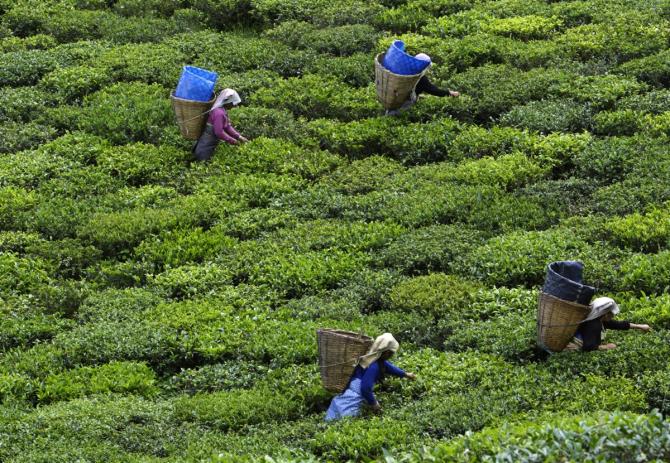Sri Lanka’s tea industry, the lifeblood of its rural economy and a global symbol of national pride, is facing a defining moment. The Tea Research Institute (TRI) has called for sweeping reforms—blending climate adaptation with Geographical Indication (GI) certification—to safeguard the future of Ceylon Tea amid mounting environmental and market challenges.
Speaking at the “Perspectives on Geographical Indications in Sri Lanka” forum in Colombo, TRI Deputy Director of Research (Production) Dr. Shyamantha Bandara said the industry must urgently shift toward climate-smart and sustainable cultivation models. He warned that Sri Lanka, ranked among the world’s most climate-vulnerable nations, is already witnessing yield declines caused by erratic rainfall and rising temperatures.
“With nearly one million livelihoods tied to the tea sector, our future depends on innovation,” Dr. Bandara noted. Sri Lanka’s tea production, which reached about 262 million kilograms in 2024, must rise to 400 million kilograms to sustain export growth. However, he cautioned that achieving this goal requires modernised cultivation systems, advanced technology, and better soil and water management.
To adapt, the TRI is promoting shade management, improved irrigation systems, and intercropping methods such as tea-and-coconut cultivation. Dr. Bandara highlighted the potential of micro-irrigation a system successfully used in other tea-producing countries—to reduce water stress and ensure yield stability. He added that such methods should align with GI standards to strengthen sustainability credentials and market differentiation.
GI certification, which legally protects products linked to specific regions, has become a crucial strategy for global competitiveness. Following the success of Ceylon Cinnamon’s European Union (EU) GI recognition, the Tea Board and its French partners are working to secure similar protection for Ceylon Tea. “GI certification enhances traceability, prevents mislabelling, and ensures authenticity critical for maintaining trust in international markets,” Dr. Bandara explained.
He also pointed out that Sri Lanka’s tea production costs are among the highest globally, leaving limited room for price competition. Instead, the country must leverage quality and heritage through GI certification to justify premium pricing and strengthen its international reputation.
Dr. Bandara further called for institutional coordination to modernise certification frameworks and integrate digital traceability tools to meet global standards. “We must view GI as a bridge between our producers and global consumers, enhancing transparency and market access,” he said.
The Colombo forum, co-organised by the Sri Lanka Tea Board, the French Agricultural Research Centre for International Development (CIRAD), and the Institute of Policy Studies (IPS), concluded the Ceylon Tea GI project supported by the French Agency for Development.
As climate pressures intensify, the TRI’s message is clear: without urgent innovation and GI-backed sustainability, Sri Lanka’s world-famous tea risks losing its competitive edge in an increasingly uncertain global market.
